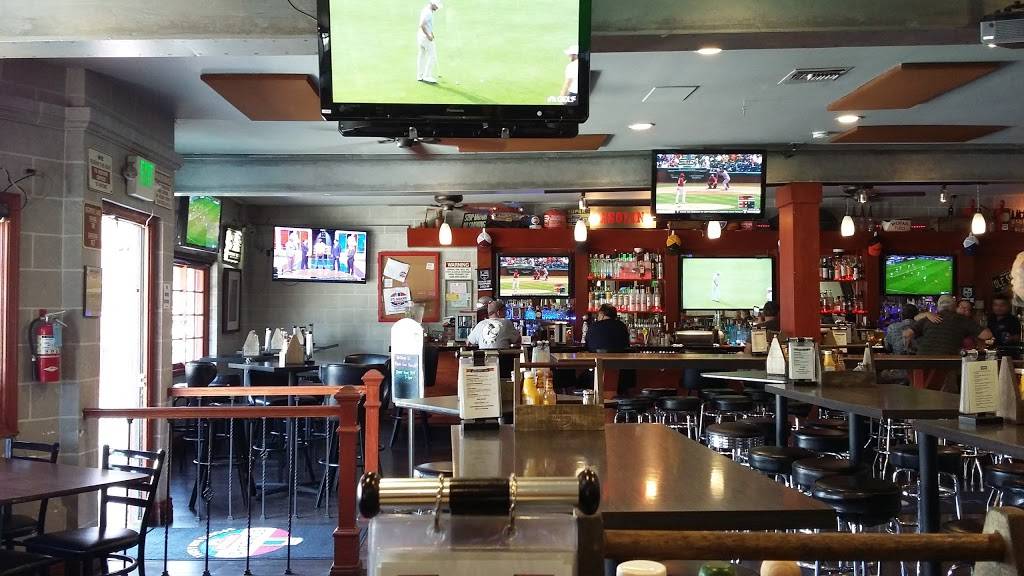Searching For Standard Station Sports Bar & Grill? Try These Tips!
Are you tired of the endless search, the frustrating dead ends, and the repeated echoes of "We did not find results for..."? The quest for a reliable, accessible, and satisfying source of information shouldn't feel like navigating a digital labyrinth; unfortunately, that is often the experience when seeking something specific, especially in the rapidly evolving landscape of online search.
The digital age, with its boundless ocean of data, promised to make information retrieval easier than ever. Yet, for many, the reality falls short of the promise. Typing in a seemingly simple query, such as "Standard station sports bar & grill," can often lead to a series of unproductive outcomes. The search engine, our modern oracle, responds with a frustratingly uniform message: "We did not find results for..." accompanied by a perfunctory "Check spelling or type a new query." This cycle of disappointment highlights a significant challenge in the digital realm: the struggle to connect users with the precise information they seek. The issue isn't necessarily a lack of data; rather, its a problem of discoverability, accuracy, and the ever-present influence of algorithms designed to prioritize certain types of content over others. Whether the problem stems from incorrect spelling, imprecise phrasing, or the absence of the desired establishment from the online ecosystem, the end result is a user left wanting, forced to start their search anew, often with no clear path forward.
Let's delve deeper into the implications of such search failures. Imagine you're planning a night out. Perhaps you've heard whispers about a new establishment, the "Standard station sports bar & grill," a place that promises a vibrant atmosphere, delicious food, and exciting sporting events. Your expectations are high, and the anticipation builds as you picture yourself enjoying an evening of camaraderie and entertainment. You reach for your phone or computer, enter the name into your favorite search engine, and then... the dreaded words appear: "We did not find results for..." The initial enthusiasm deflates, replaced by a sense of frustration. Are you entering the wrong information? Is the place so new that it hasn't yet made its digital footprint? Are the online platforms failing to provide accurate information? These thoughts race through your mind, and the simple task of finding a local business transforms into a puzzle with no immediate solution. This frustration is a common experience and reflects broader challenges in how we consume and access information online. The need for accurate information in the digital world is important, and the absence of information can cause issues, especially in the world of business and commerce, where a business's online presence can significantly impact its success.
The repetition of this experience, the endless loop of unsuccessful searches, erodes trust in digital platforms. Users begin to question the reliability of search engines, the accuracy of online directories, and the ability to find what they are looking for. The repeated encounter with the message Check spelling or type a new query" can quickly lead to search fatigue, making users less inclined to persist in their quest. They begin to lower expectations, perhaps focusing on the readily available information instead of venturing further afield in search of a specific item or service. The impact extends beyond individual experiences, potentially influencing consumer behavior and impacting the success of businesses.
The core issue goes beyond a simple case of typographical errors or misspelled business names. It touches upon broader problems such as the ever-evolving nature of business names and the dynamic state of online information. Businesses are constantly changing their names, moving to different locations, or evolving the services they offer. Maintaining up-to-date listings in online directories and search engine databases is a constant challenge. Furthermore, as the online ecosystem becomes more complex, with algorithms prioritizing specific content types, it's crucial to understand how such mechanisms can impact the visibility of businesses and how consumers access information. This includes considering how different industries and sectors are impacted.
This seemingly minor issue highlights the necessity for individuals and businesses alike to engage proactively with the digital world. Those who understand SEO (Search Engine Optimization), online marketing, and the mechanisms driving online search have a distinct advantage. Businesses that prioritize their online presence, manage their listings actively, and adapt to changes in the digital landscape will be more likely to capture the attention of prospective customers. On the consumer side, it suggests the importance of digital literacy: learning how to refine search queries, navigate online resources effectively, and evaluate the credibility of the information encountered.
To grasp the situation thoroughly, consider the hypothetical scenario of the "Standard station sports bar & grill." It is a name that is, at least for the purpose of this example, designed to be easily misunderstood by automated search systems. This is not an unusual situation; many businesses have names that are prone to misinterpretation or are composed of terms that can be easily confused. The "Standard station" part might cause an algorithm to prioritize results related to train stations or the concept of standards. "Sports bar" is a generic term, leading to an ocean of search results, from listings of other bars to general articles about sports. "Grill" could bring up recipes or reviews of grills, further diluting the results. The combined effect is that the algorithm struggles to accurately identify the specific business being sought.
The inability to find results can lead to a ripple effect. The business might be missing out on valuable customers who are unable to find it online. The potential customer, in turn, might miss out on an enjoyable experience, a missed opportunity for commerce and connection. When information is obscured or unavailable, a fundamental connection is disrupted, a loss for both the business and the potential customer. This is a modern manifestation of the age-old problem of bridging the gap between needs and services.
Beyond these direct ramifications, the repetitive experience of failed searches affects user perception and behavior. When searches consistently produce negative outcomes, users begin to adjust their expectations. They may be more inclined to select only what is easily found, disregarding lesser-known establishments or services. They might choose larger, more prominent, businesses simply because they appear higher in search results, giving an unfair advantage to those with higher visibility. Ultimately, such a phenomenon results in a potentially less diverse marketplace, limiting the options for consumers and the opportunities for smaller businesses to thrive.
In light of the consistent failures, the message "Check spelling or type a new query" seems inadequate. It offers no real solution, merely a suggestion to start again. It can feel like a dismissive response, an admission that the search engine is not meeting the users needs. Addressing the problems inherent in such searches requires a multipronged approach. Search engines can improve their algorithms to better understand nuanced queries and account for potential misspellings or variations in business names. Businesses can be more proactive in ensuring they appear in online directories and that their information is accurate and updated. Users can hone their search skills, understanding the limitations of search engines and learning how to conduct more effective searches.
The challenge of finding information is not a simple issue. It's a complex problem with societal, commercial, and individual implications. When search queries repeatedly fail, we realize that it is more than just an online issue; it's a statement on modern information accessibility, and the impact of our digital world on individual experiences and the future of commerce.
Now, let us examine what "Standard station sports bar & grill" could mean. It is probably a local business, and the name combines recognizable keywords for a bar and grill, where people go to enjoy drinks, food, and sports. Perhaps the bar is located near a train station, which is where the name comes from. The name, however, offers insight into the problem. If you misspell any part of it, or enter a common term and your search returns no results. This illustrates a common issue in online searches, one where precise and accurate information retrieval is essential to the business's success. The name is a starting point, and it needs to be correctly entered. It can also indicate the challenges businesses have in getting the word out about their services and ensuring that their businesses are discoverable online.
Here is a table of data to illustrate the point, showing how businesses can be more discoverable through strategic online presence.
| Aspect | Description | Strategic Steps | Expected Outcome |
|---|---|---|---|
| Business Name | "Standard station sports bar & grill" |
| Improved discoverability; better brand recognition. |
| Online Listings | Absence from or inaccuracies in online directories. |
| Increased visibility in local search results; improved customer trust. |
| Website | No website or an outdated, unoptimized website. |
| Improved search engine rankings; increased online traffic. |
| Social Media | Inactive or missing social media presence. |
| Increased brand awareness; improved customer engagement. |
| Online Advertising | No targeted advertising campaigns. |
| Increased reach to potential customers; drive traffic to website/business. |
This example of the "Standard station sports bar & grill" and the failure to find results can be applied to a variety of situations. It underscores the need for a more proactive approach to information access. Consumers, businesses, and search engines must collaborate to create a more robust and user-friendly digital landscape. This is not simply a technical issue, but a matter of economic viability. A business that cant be found online may not survive in an increasingly digital marketplace. The consumer loses out on choices, and the business misses opportunities. A proactive approach is essential for success.
In a world that promises instant access to information, the experience of "We did not find results for..." serves as a call to action. We need to create a more reliable, efficient, and user-friendly information retrieval system. This means focusing on accuracy, discoverability, and the evolution of the digital world.


